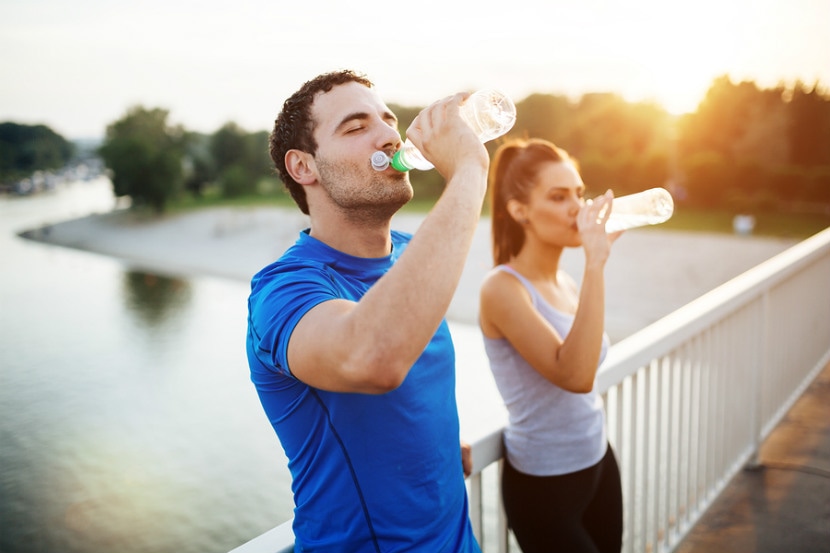It’s heating up!
In what is shaping up to be a very hot summer indeed, one of the key things to consider when undertaking sports or activities are the effects of heat on the body. As the temperature rises above 35°C (hot day), the body has more difficulty keeping the core temperature around 37°C.
In cooler temperatures, the body can regulate temperature through expanding the blood vessels near the skin and bringing warm blood (internal body heat) to the surface, where perspiration can evaporate from the skin to remove heat from the blood/body. It is normal for the body to perspire about 2 litres of fluid every 24 hours, but during hot days, the fluid loss can be up to 10 litres over the 24 hours. Exercising on top of this only further accelerates this fluid loss. When the body can’t evaporate perspiration fast enough to keep the body cool, heat stress occurs in conjunction with the loss of body salts and water.
Symptoms of heat stress include deterioration in sporting performance, muscle cramps, headaches, dizziness, nausea and vomiting. If left untreated, these symptoms can progress to the life-threatening heat stroke, where the body completely loses the ability to cool itself and internal organs begin to shut down. Children and the elderly are more sensitive to dehydration and heat stress in warmer weather, so in team sports, make sure you keep an eye on your younger and older team-mates because the heat will affect each person differently.
To reduce the effects of dehydration on the body during sports and especially if you are expecting to be playing in the heat, ensure you start to pre-hydrate the night before!! Simply drinking some water just before the start of the game will not suitably hydrate your system enough to cope with the increased demands on your body. Other tips can include:
- Fitness:A physically fit body is better able to manage the stresses of sport.
- Acclimatisation: Keep up an exercise program during the cooler months, so that your body is prepared for sport during summer.
- Avoid the hottest part of the day: Start sporting activities before 9 am or after 6 pm during summer and try to avoid sport or exercise during the hottest part of the day.
- Clothing:Wear loose, light-coloured and comfortable clothes made from natural fibres such as cotton. Wear a visor or hat.
- Fluids: –drink at least half a litre of fluids in the two hours before exercising. During your sport, aim to drink about 200 ml every 20 minutes or so. Choose a specially formulated sports drink if your sporting event goes for more than an hour. After the game, drink around half a litre of water.
- Alcohol:Alcohol dehydrates the body, so avoid drinking any alcohol for at least one day before playing sport.
- Rest breaks:Frequent breaks in the shade allow the body to cool down.
- Check for symptoms: Be alert for the symptoms of heat stress or dehydration.
A quick and easy indication as to your hydration levels is a visual check of the colour of your urine. Comparing it to the chart below, this will give you a simple way of determining how hydrated you are and whether you need to consume more fluid/water. This can be printed out and placed next to the toilets in your workplace or sporting clubs.






